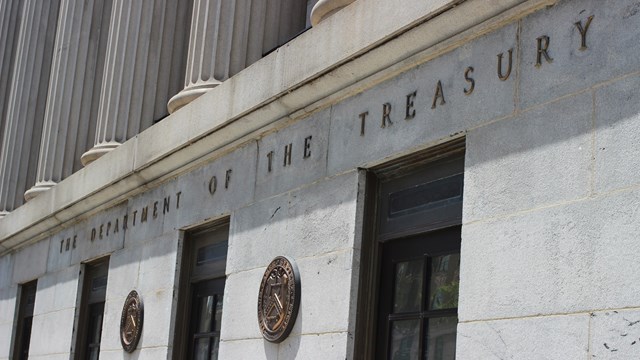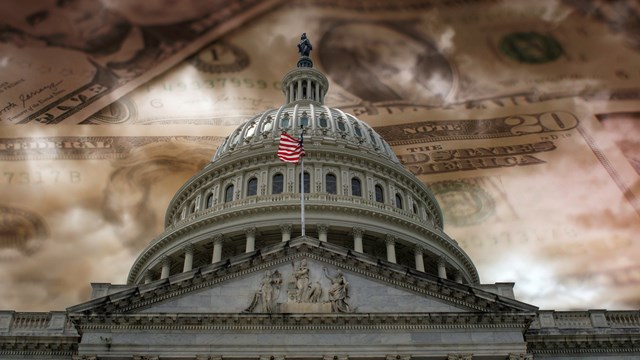From time to time, legal cases pass through the courts that have important, far-reaching implications for those of us living in or serving on the boards of our homeowners associations. These are precedent-setting cases that dictate changes in how boards and management run their buildings and associations. In December of 2000, just such a case was filed by the New Jersey ACLU (ACLU-NJ) on behalf of a group of homeowners in the Twin Rivers Homeowners' Association (TRHA) in East Windsor.
The Case
The plaintiffs' group filed their lawsuit in response to what they saw as a series of unacceptable actions carried out by the association's board of trustees—chief among them violations of freedom of expression and association, and denial of access to information. Specifically, the lawsuit claimed that the plaintiffs were denied access to the HOA's community room—which they planned to use to discuss upcoming board elections—and were forbidden to post board election signs on community property—though other residents were allowed to both use the community room and post signs.
The plaintiffs also claimed that they were denied access to financial records and other materials kept by the association board, and were prevented from taping or acquiring tapes of otherwise open board meetings.
Finally, the suit against Twin Rivers claimed that board candidates running opposite incumbent board members were unfairly denied access to lists of eligible voters and fair and equal access to coverage in the community's monthly newsletter, thus hampering their efforts to campaign for board seats.
The plaintiffs and the ACLU-NJ alleged that the actions of the board were unconstitutional, and sought to establish that free speech rights under the New Jersey Constitution apply to large private condominiums such as Twin Rivers.
On February 17, 2004, the trial court ruled that THRA violated the plaintiffs' free speech and voting rights under a New Jersey's Planned Real Estate Development and Full Disclosure Act. However, the judge was not convinced that the state's Constitution extended to claims against private HOAs. After that, the case was appealed.
The Appeal
The New Jersey's Appellate Court has issued a landmark decision stating that New Jersey's Constitution and its protections "can be available against private entities, as well as governmental entities, when the private entities have 'assumed a constitutional obligation not to abridge the individual exercise of such freedoms because of the use of their property.'"
In Committee for a Better Twin Rivers, et al. v. Twin Rivers Homeowners' Association, et al (A-4047-0352), owners sought an order permitting "the posting of political signs" on their property "and on common elements under reasonable regulation." The trial court rejected that claim and found that the association is "not subject to the constitutional limitations imposed on state actors..." and was therefore permitted to limit the actionable speech of its community members. The trial court upheld the association's ban on political signs and applied the "business judgment rule" as the standard of review for "duly enacted policies and decisions" of association boards.
The Appellate Court, noting the increasing number of New Jersey residents living in private community associations, reversed the Trial Court's ruling and found that New Jersey's Constitution and its protections are available to citizens (including association residents) and can be used against private entities (community associations) in certain circumstances.
The court discussed the long line of cases by which New Jersey's Constitution was found to be applicable to private property and referenced its previous decisions in which the court held that "The constitutional right to free speech could outweigh the property rights of a private condominium even in the absence of an express or implied invitation to the public or the speaker,"—including the 1995 Guttenberg Taxpayers and Rentpayers Ass'n v. Galaxy Towers Condominium Association and the 1996 case of the same name, which involved the access to flyers and other promotional materials by opposition candidates to the condominium's board.
In the Twin Rivers case the Appellate Court felt that an association's suppression or control of certain "expressive" exercises "relating to life in the community or elsewhere" should not be considered as a contract dispute / matter of business judgment. This part of the case was sent back to the Trial Court to review the facts of this particular association's regulation of expressive activity, not as it relates to the business judgment rule, but in relation the limitations imposed by New Jersey's Constitution.
What It Means to You
As a result of the Appellate Court's decision in this case, and until altered by the New Jersey Supreme Court or otherwise, associations must tread carefully when considering rules and/or regulatory schemes connected to members' expressive exercises. Those "exercises" could range from flyers related to board elections to hanging flags outside of a home, petitioning to remove trustees, or to limit or expand board or member powers. While it is likely that associations can impose reasonable rules "governing the time, place and manner for the exercise of ... expressional rights," associations must balance the law's protections afforded to private property and expressive exercises upon such property.
A guide on how to handle such issues can be found in a 1980 New Jersey Supreme Court case, which directs the private association or entity to account for:
• The nature, purposes, and primary use of such private property
• The extent and nature of the public's invitation to use the property
• The purpose of the expressional activity undertaken upon such property in relation to both the private and public use of the property.
Associations should undertake a review of all existing rules utilized to regulate and/or control the expression of its members and consider their enforceability under stricter constitutional limitations and not under the more lenient business judgment rule.
David Byrne is an attorney in the Community Associations Group of the Lawrenceville, N.J. office and New York City-based law firm of Stark & Stark.







Comments
Leave a Comment